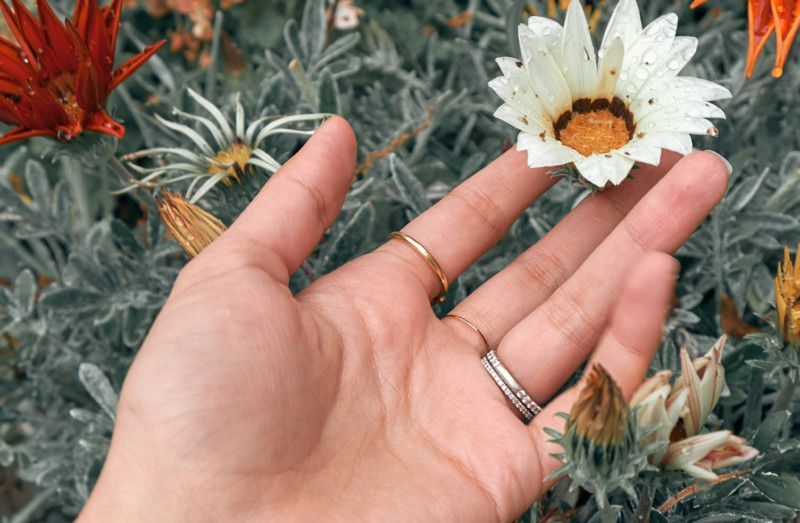
After twenty days in Japan, I am far from an expert on the beautiful and unique Asian country, but I visited long enough to experience quite a spectrum of cultural differences that compare directly with life in the U.S. I’ve been readjusting to the dramatically less stimulating life on the east coast (compared to Tokyo), but I find myself longing for many of the wonderful aspects of Japan. Here are the things I realize I can’t live without…
Toilets A Plenty
They really have perfected the bathroom experience in Japan, and while I’ve seen the mechanized toilets before in the States, it was the first time I had ever tried the butt gadget. From white-noise privacy sounds to rear washers and dryers, I don’t know how I lived without a heated toilet seat before now. And the best part? They even have these luxury toilets in shopping malls and airport bathrooms! In fact, during our stay, I enjoyed exploring public restrooms in general and was delighted by their cleanliness and practicality. Some had changing rooms (complete with clean footstools so you could take your shoes off), others had beauty tables and lights, every single one had places to put purses or bags, and most had options for parents with a small seat in which to stash your baby! The entire bathroom experience felt wonderful, and the facilities are a real place to refresh yourself. Personally, I’m feeling lost without the love of a Toto Washlet.
How Fast Do Your Trains Go?
It’s a breeze to travel up and down the length of Japan because of their exceptional high-speed train system (called the Shinkansen). These amazingly fast trains (200 MPH) get you around the country with ease. The seats are large, recline way back, and even have plugs in the armrests for you to recharge your devices. And get this! The stewardesses bring around towels for you to clean your hands upon arrival. Not only was it clean and comfortable, but it felt incredibly civilized. Beats the Acela Express by 200 miles.
A Subway I Could Make Home
I loathe subway travel in Manhattan. Between the layers of grit and grime on every surface, to the wacky guy hanging out in your car, these are the sights and smells that I’d just rather not experience in New York City. But in Tokyo, it was a delight to travel by subway. The lines spread throughout the sprawling city, and all were well marked, abnormally clean, and the people were quiet and respectful. Trains ran regularly and were always on time – so much so that they could tell you the exact time it would take you to get to your desired station. Attendants were helpful, and even at rush hour, when you’re crammed into a car, it wasn’t too bad. Also much like Montreal, there are many tunnels and walkways to the nearby buildings at each station, so every exit was marked (and numbered) to save you time finding where to go. My only qualm was due to the number of subway lines you had to ride several escalators to come out from underground. However, it was good exercise!
Maintenance is Key
The Japanese practice a way of life called Kaizen, making continuous improvements through small incremental changes. This was exhibited throughout the country in many ways, but it was most obvious in the maintenance of public spaces. As Jon and I waited to board the Shinkansen from Tokyo, I watched a team of cleaners in pressed uniforms hop on the train and begin vacuuming and tidying. Each worker was responsible for a different section and took the job seriously. From a watch hanging from their pocket to monitor the time to a mirror extended to view the overhead bin, the practice of taking care of things has paid off for the longevity and cleanliness of the trains. In the subway, I saw clever ways to siphon off ventilation condensation so it wouldn’t drop on people’s heads. Once when we swiped into a station, I witnessed a man vacuuming inside the ticket machine. And in the evening I spotted a woman on a business district sidewalk on her hands and knees with a spotlight positioned towards the ground. She was using a pallet knife to remove a piece of gum. As you can imagine, it took me a few moments to lift my jaw off the floor. Even in the mountains of Gero, after a rainstorm, I saw a driver wipe off his windshield wipers (might I add that his vehicle was already pristine). This practice of Kaizen, not only increases the longevity of everything, but it shows deep respect for the objects you use and the things that give you a living. When the train cleaners exited the cars with a final check, they turned and bowed to the vehicle, saying thank you to this object that essentially employs them. It’s beautiful to see jobs that are important and dignified at every level of the workforce and that serve a greater purpose of maintaining the country’s infrastructure.
Public Safety
Japan is the safest place I’ve ever visited. With half the number of people as the U.S., it is seriously surprising how they maintain such order with a huge population. I think a lot of it comes from the people themselves. With solid gun laws, respectable jobs at every economic level, and strong community ties, everyone chips in to help maintain order and safety.
No Plot Unused
One of the loveliest things I witnessed was people’s constant use of even the tiniest plot of land. Whether it inhabited potted plants or a few vegetables, the locals found uses for small natural spaces. Land that was adjacent to a home could be used for growing rice, vegetables or flowers and if they so desired, could be landscaped into rock gardens or exceptional outdoor spaces. If there was five feet to grow something, it would have plants. Meanwhile, the layout of neighborhoods were nestled into forests, and builders would often respect a beautiful grove or elderly tree, leaving it be. This all goes back to a general respect of nature in the Japanese culture.
A Job Well Done
I have never seen someone make a pizza like the chef at Pizza Studio Tamaki. Wiry thin muscles, laser focus, and an intensity about finding the perfect proximity to the heat in the wood fire oven made it easily one of the best pizzas I’ve ever tasted. Sitting at the bar and watching a master at work, was just one of the many pleasures of visiting Japan. I liked people’s work ethic, and I liked how they pushed themselves to be the best at what they chose to do.
Fruity Gifts
What do you do with a $300 melon? Well, you eat it of course! The habit of sending perfect looking (and tasting) fruit is a lovely tradition in Japan and a better gift than most things. I can vouch for the $100 Shine Muscat grapes – not only were they perfect looking, but they were also the best tasting grapes I’ve ever had in my life (here’s proof from Youtube). Definitely a sweet treat for a special occasion and way more healthy than a bottle of wine or box of candy.
Bathing Culture
Give me a hot tub, and I’ll be your friend forever – just one of the many reasons I fell in love with Japan. Every hotel had a sprawling bathtub because the bathing culture is alive and well. From porcelain to wood, and natural stone I took a bath nearly every evening during our stay. It was lovely, but also absolutely necessary given how far we walked and how achy our legs were. If you watched my stories on Instagram, you got to witness the views from a bath in Tokyo and the steamy retreat of the natural springs in Gero Onsen. I was in hot water heaven.
Not Trashy
People clean up after themselves, and with a team of maintenance workers, the cities and towns are kept exceptionally tidy. It was so contagious that I even found myself picking up any bit of trash around Tokyo. Let’s keep the planet clean, people!
Travel inherently changes you and it was a delight to discover these unique characteristics that make Japan a truly wonderful place to visit. While I had my fill of soy sauce and gyoza, I know I will always long for all these elements of Japanese culture. Though I can’t convince the entire United States to have better toilets, I’ve already started implementing the things I love about Japan into my daily life. You might find me quietly bowing to my computer, painting forgotten hallways scuffs, and I just might be looking for a little land to cultivate my own zen garden.
What cultural behaviors or conveniences would you import from other countries? Share with me in the comments below!






2 comments
Excellent post – right now all I see in lifestyle blogging is how to be more like “a french girl” or how to bring more Hygge to one’s home, but Asia has a lot of valuable life lessons and cultural imports we can adopt too! I love how mindful the Japanese are about the little things that make a place special – because we can apply that to so many aspects of our lives!